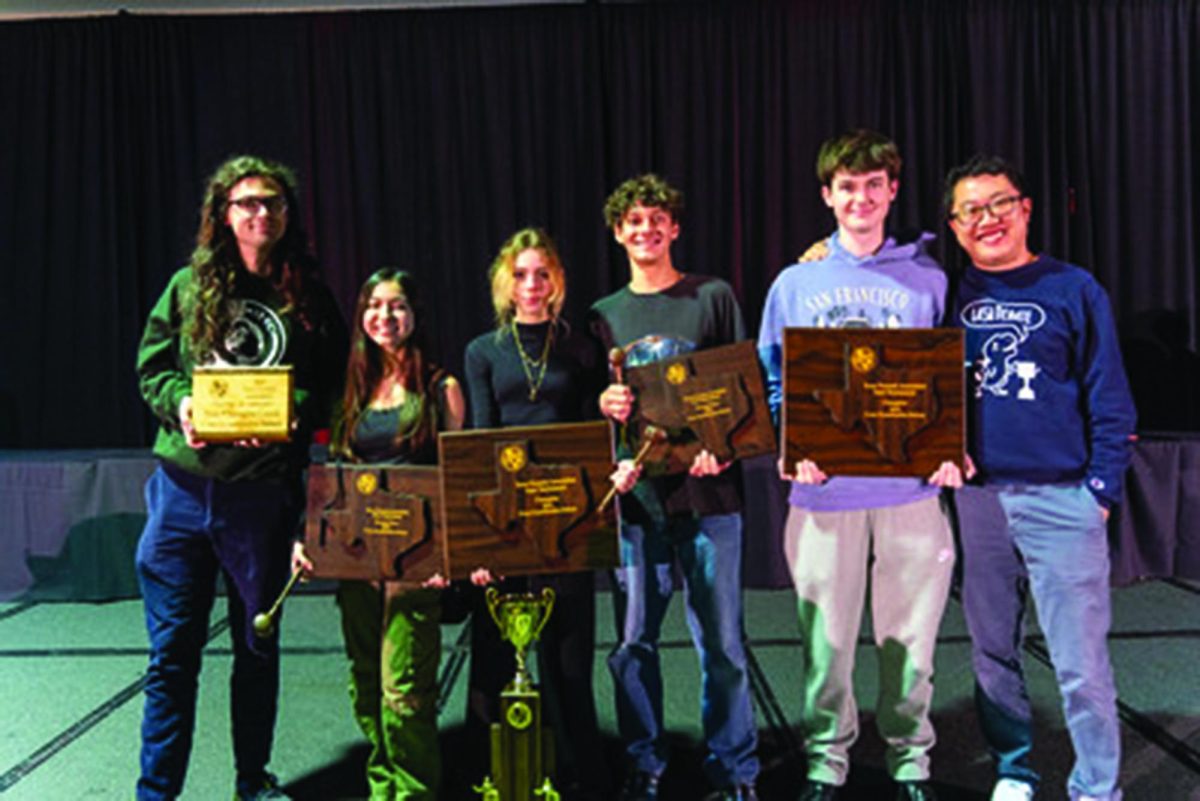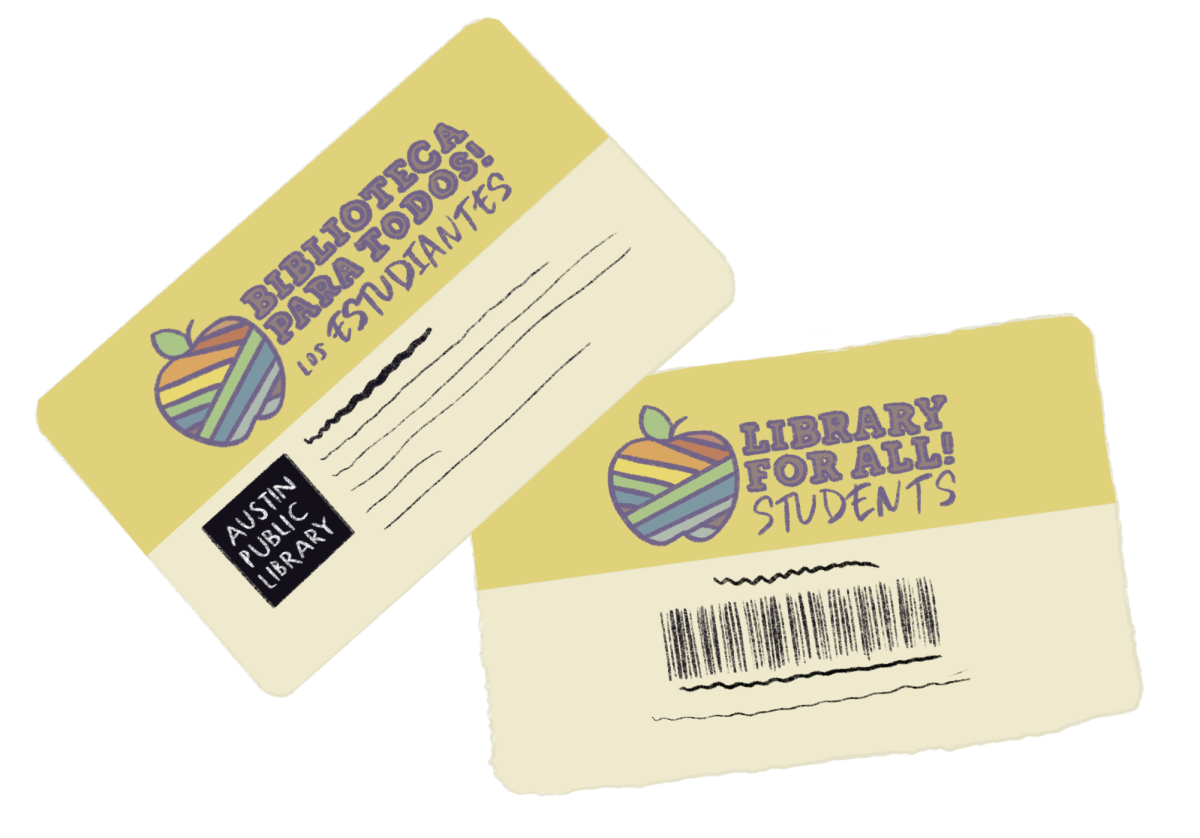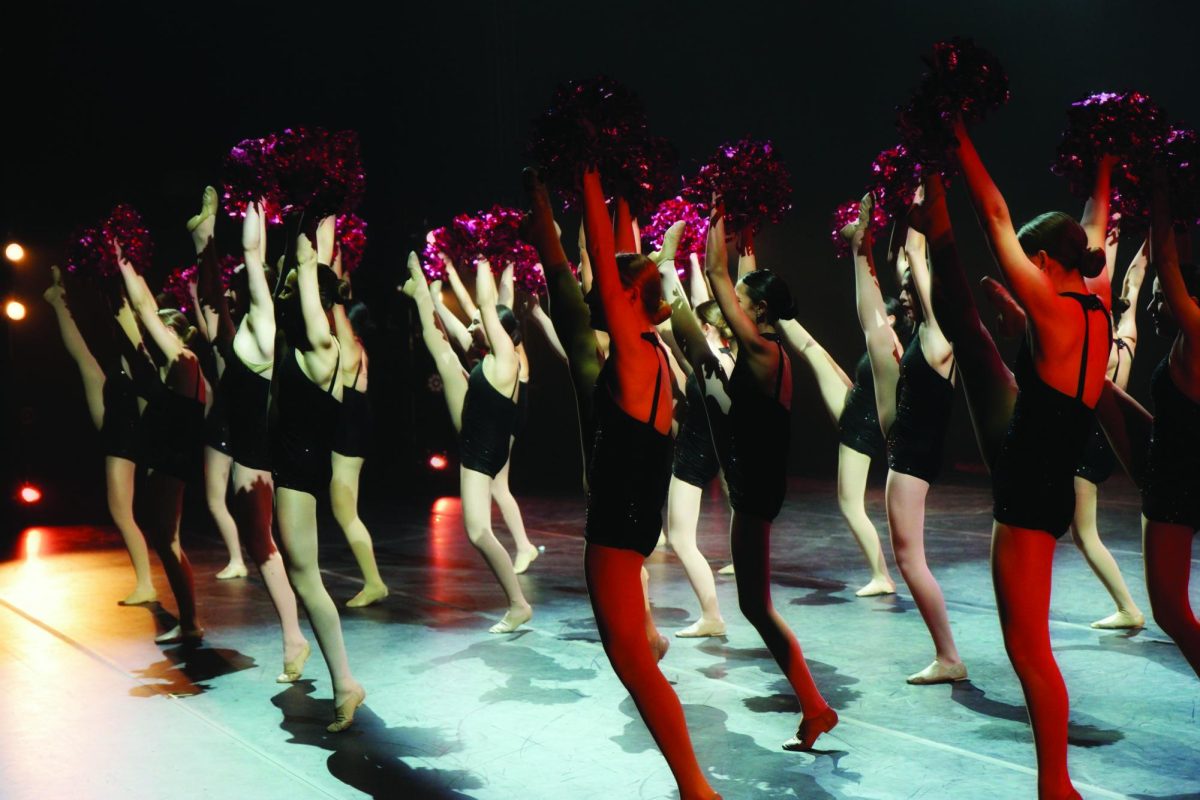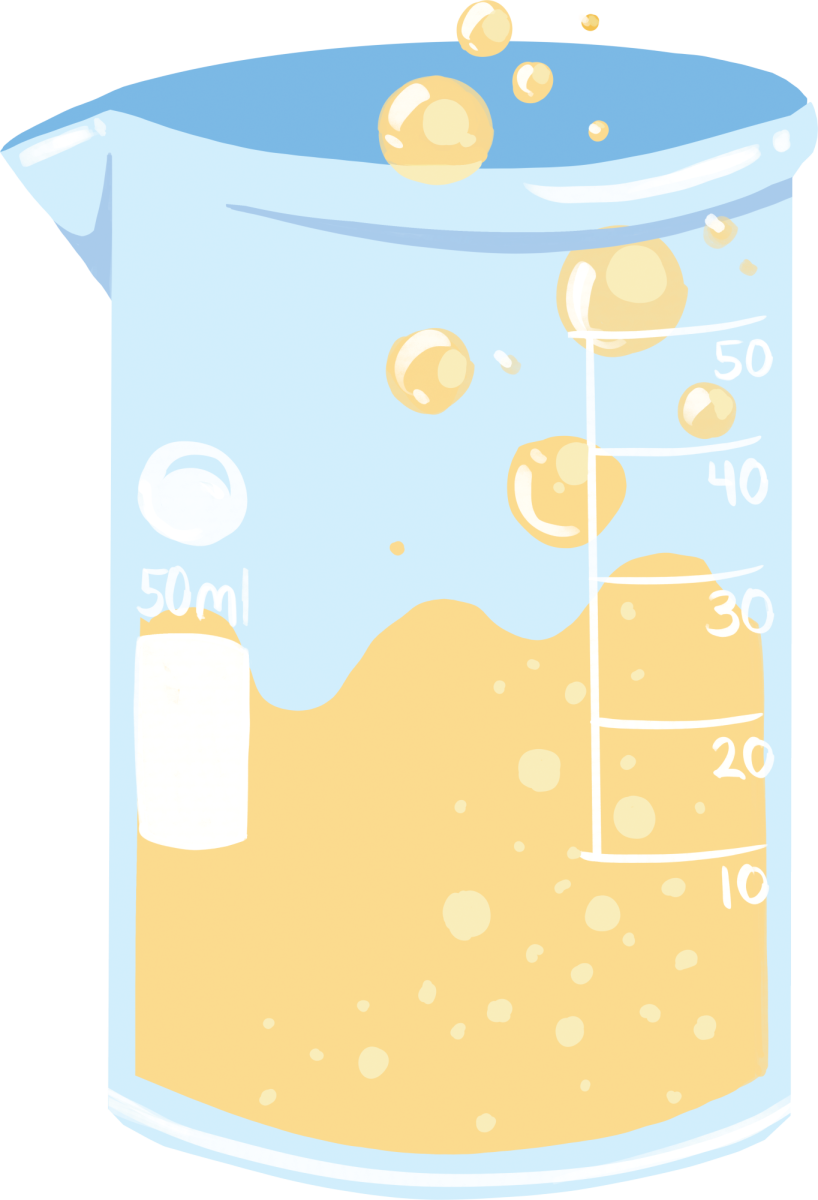The LASA debate team has had many successes and wins in the past couple of years. Last year, the team won the national tournament known as the Tournament of Champions, and had the number one spot on the coaches poll, a list decided every few months by coaches nationwide ranking different debate teams. This year, the team won the Texas Forensic Association State Tournament and has won other national-level tournaments such as the Emory and Michigan debate tournaments.
Freshman Eyal Rosenburg is a first-year member on the debate team. He explained that debate, contrary to what people initially think, requires more than simply using persuasive techniques like pathos or ethos in an argument.
“It’s more a game of research and knowledge and learning instead of actually trying to convince someone,” Rosenberg said. “We have to talk really fast, that’s one of the things we learn to do. A lot of my friends will be like, ‘that’s dumb how do you convince anybody when you’re talking really fast?’ But, it’s more about getting a lot of arguments in because the judges are used to people talking fast.”
Senior Eleanor Barrett, the president of the debate team, believes that debate has many educational benefits such as improved research skills. According to Barrett, although debate can sometimes be a dozen hours of work a week, it can be enjoyable and very fulfilling in the long run.
“There’s a lot of benefits,” Barrett said. “For one, just competition is really enjoyable. It’s kind of fun to compete and debate and argue. Secondly, you learn a lot. It teaches you about research, public speaking, critical thinking, and it teaches you a lot about media literacy. And thirdly, debate also is really big for college applications. I got a full ride for debate, for example.”
Additionally, Barrett mentioned keeping up with both homework and schoolwork is often a problem that arises when preparing for debate. According to her, being good at debate requires a lot of work to be put into the activity and prioritizing debate preparation.
“You just have to be really disciplined about managing your time and not wasting time,” Barrett said. “You have to be extremely motivated. The people that are going to be good at debate have to really want to.”
On the other hand, senior Levi Rosenthal prioritizes school over the debate team. Although he appreciates how it is an engaging and interesting way to engage with current issues, he views it as a fun side activity and focuses on homework and studying.
“I view debate more casually than some people do,” Rosenthal said. “Some people will debate over their schoolwork. That’s fine, but I just personally find a nice balance by reminding myself that debate is just a game at the end of the day and that workload for debate should not be outpacing my schoolwork.”
According to Rosenberg, in addition to the preparation aspect of debate, the competitions can also be very stressful. He explained that there are many necessary steps to stay prepared for debate like scouting other teams’ arguments, updating your evidence, and doing practice debates.
“You have to go onto there and figure out what they are going to read and make answers to all that sort of stuff to make sure you are ready,” Rosenberg said. “You also just have to get better at debate to prepare. You can do practice debates, you can do practice speeches where you simulate up to a certain speech. There’s a bunch of other drills that you can do like case drills and panic drills to get better at debate.”
According to Barrett, debate can be both a physically challenging activity to do and be equally challenging mentally. However, Barrett finds that even with all its difficulties, it’s a fun activity to do.
“Debate can be emotionally difficult,” Barrett said. “When you spend that much time on something, you’re really invested in the results…but tournaments, like the actual debating, are really exciting. It’s really adrenaline-inducing.”







